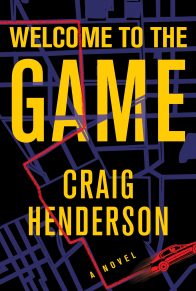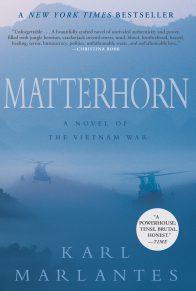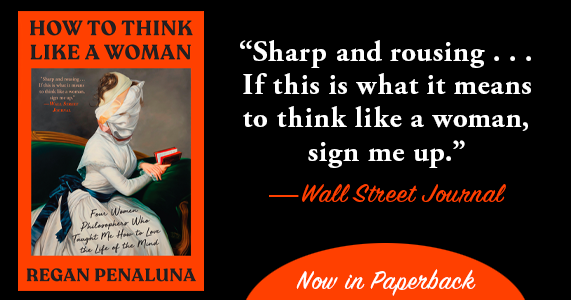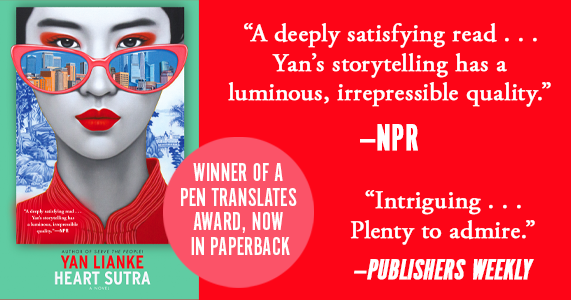About the Book
Karl Marlantes’s debut novel Matterhorn has been hailed as a modern classic of war literature. In his new novel, Deep River, Marlantes turns to another mode of storytelling—the family epic—to craft a stunningly expansive narrative of human suffering, courage, and reinvention.
In the early 1900s, as the oppression of Russia’s imperial rule takes its toll on Finland, the three Koski siblings—Ilmari, Matti, and the politicized young Aino—are forced to flee to the United States. Not far from the majestic Columbia River, the siblings settle among other Finns in a logging community in southern Washington, where the first harvesting of the colossal old-growth forests begets rapid development, and radical labor movements begin to catch fire. The brothers face the excitement and danger of pioneering this frontier wilderness—climbing and felling trees one-hundred meters high—while Aino, foremost of the books many strong, independent women, devotes herself to organizing the industry’s first unions. As the Koski siblings strive to rebuild lives and families in an America in flux, they also try to hold fast to the traditions of a home they left behind.
Layered with fascinating historical detail, this is a novel that breathes deeply of the sun-dappled forest and bears witness to the stump-ridden fields the loggers, and the first waves of modernity, leave behind. At its heart, Deep River is an ambitious and timely exploration of the place of the individual, and of the immigrant, in an America still in the process of defining its own identity.
Praise for Deep River:
“Marlantes conveys the elements, arcana and dangerous romance of logging superbly. His descriptions of logging itself—the ingenious mechanics of taking down trees and the skill of experienced loggers—are wonderfully detailed, dramatic and exhilarating… Mighty physical, social and economic forces operate the plot of this novel, buffeting its characters, raising them up, flinging them down, twisting their fates together. Deep River is a big American novel.”—Wall Street Journal
“Deep River is an engrossing and commanding historical epic about one immigrant family’s shifting fortunes… An unforgettable novel.”—Washington Post
“Marlantes poignantly depicts the intimacies of personal dramas that echo the twentieth century’s unprecedented political storms and yet in surprising ways reprise Finland’s oldest mythologies… An unforgettable novel.”—Booklist (starred review)
“As a portrait of a complicated American era, and one family’s mighty struggle against it, the novel is both fascinating and fierce. And well worth the hours it asks of its reader.”—San Francisco Chronicle
“Deep River seems a work born from Willa Cather by way of Upton Sinclair. But this new book is its own animal, and it’s something of a masterpiece… In Deep River, [Aino] takes her place beside Antonia Shimerda as one of the great heroines of literature.”—BookPage (starred review)
“Inspired by family history, Marlantes (Matterhorn) offers a sprawling, painstakingly realistic novel about Finnish immigrants in the Pacific Northwest during the first half of the 20th century… Marlantes’s epic is packed with intriguing detail about Finnish culture, Northwest landscapes, and 20th-century American history, making for a vivid immigrant family chronicle.”—Publishers Weekly
“A riveting read in the classic western literature tradition of Wallace Stegner’s The Big Rock Candy Mountain, delivering the rich pleasures of an epic story well told… The realism of Deep River comes with a magical tinge.”—Oregonian
“An admirable work, this monomyth is dense…with Marlantes’s gift for lyricism and evocative language.”—Library Journal
“As a Seattle native of Finnish descent, I fully endorse this book in its many hundreds of pages. Sisu, dear readers.”—Omnivoracious
“Marlantes poignantly depicts the intimacies of personal dramas that echo the twentieth century’s unprecedented political storms and yet in surprising ways reprise Finland’s oldest mythologies…An unforgettable novel.”—Booklist (starred review)
“Inspired by family history, Marlantes offers a sprawling, painstakingly realistic novel about Finnish immigrants in the Pacific Northwest during the first half of the 20th century… Marlantes’s epic is packed with intriguing detail about Finnish culture, Northwest landscapes, and 20th-century American history, making for a vivid immigrant family chronicle.”—Publishers Weekly
“Karl Marlantes is back! All the key elements that made Matterhorn such an amazing book are alive and well in Deep River. These are deeply felt characters that become part of your family. The majesty, danger and beauty of the landscape is painted in bold vivid colors. It is so rare to have an 800 page novel be such an effortless and rewarding read, but Marlantes has now done it twice.” —Robert Sindelar, Third Place Books (Lake Forest Park, WA)
“Karl Marlantes’ follow-up to Matterhorn does not disappoint. Deep River follows the lives of a family of Finnish immigrants who come to America in the late 1800s and tells the stories of the their friends and family from the beginning of the great American labor movements through the World Wars. Don’t be deterred by its door-stopping 800 pages. Deep River is a page-turner. It’s stunning, timely and all-consuming. The prose is exquisite. The characters are fierce and robust. And more than anything else, the novel is a history lesson and a warning, as its portrait of 1900s America is so startlingly similar to the present state of the country. Deep River is a revelation.”—Michelle Malonzo, Changing Hands (Tempe, AZ)
“Rarely does a book hold me in its grip for over 800 pages, but Karl Marlantes’ follow-up to his novel Matterhorn did just that! Deep River is the story of the Koski family, Finns who escaped to the American Northwest from Russian aggression in the early 20th century. Through the decades, they become loggers and engineers, midwives and mothers, healers and labor activists. Seen mostly through the eyes of Aino, the sister of the three siblings and a vocal opponent to the lumber barons, this epic novel draws you into its world, expertly creating an historical atmosphere, and offering characters of such depth that it is sometimes astonishing. This is an immersive novel like Pachinko or War and Peace or The Far Pavilions that surrounds you for weeks as you inhabit this world. Kudos to Mr. Marlantes!” —William Carl, An Unlikely Story (Plainville, MA)
“You’ll want to go home every night to read Karl Marlantes’s Deep River as the characters of the Koski family develop with ease and settle into your consciousness. Deep River immerses you into the sometimes harsh world of an immigrant family with nuance and sensitivity, capturing the American spirit with the power of Steinbeck’s Grapes of Wrath. Karl Marlantes has written a masterpiece, the classic American novel.” —John Evans, Lemuria Books (Jackson, MS)
“Whenever Karl Marlantes writes a new book, it’s reason to celebrate. In his first novel since the masterful Vietnam War epic Matterhorn, he’s crafted a different kind of epic, of the Koski family and their fights against oppression, first in Finland under Russian subjugation, and then as part of the rising labor movement of early 20th century America. I’ve witnessed a packed room stunned to silent awe for his What It Is Like To Go To War; there’s nothing the man can’t write.”—Rosemary Pugliese, Malaprop’s (Asheville, NC)
Praise for Karl Marlantes:
“A raw, brilliant account of war that may well serve as a final exorcism for one of the most painful passages in American history . . . One of the most profound and devastating novels ever to come out of Vietnam—or any war.”—New York Times Book Review, on Matterhorn
“Marlantes’ story is so intense that there were times reading it when I thought I could not stand to turn the page . . . Vladimir Nabokov once said that the greatest books are those you read not just with your heart or your mind, but with your spine. This is one for the spine.”—Philadelphia Inquirer, on Matterhorn
“Carefully constructed and beautifully realized . . . Filled with truth, wisdom, love, and a rich vein of dark gallows humor.”—Newsweek, on Matterhorn
“Matterhorn will take your heart and sometimes even your breath away.”—NPR’s All Things Considered, on Matterhorn
“Superb . . . A treasure . . . It’s a bloody Vietnam epic, to be sure. But it’s also a full-blooded inspection of the human spirit.”—Christian Science Monitor, on Matterhorn
“Visceral . . . Evocative . . . [Marlantes] pitches us into a harrowing narrative we won’t soon forget.”—USA Today, on Matterhorn
“A powerhouse: tense, brutal, honest.”—Time, on Matterhorn
“Engrossing.”—Seattle Times, on Matterhorn
“Vivid . . . Elegant . . . It tolls in the reader’s mind and leaves a long, haunting echo.”—Minneapolis Star Tribune, on Matterhorn
“Lush, compelling, and tragic . . . An unflinching story.”—Denver Post, on Matterhorn
“That rare modern novel destined to become a classic.”—Vince Flynn, on Matterhorn
“A novel of great authority and humanity. It builds inexorably to a devastating and magnificent final movement.” —Charles Frazier, on Matterhorn
“Marlantes brings candor and wrenching self-analysis to bear on his combat experiences in Vietnam.”—New Yorker, on What It Is Like to Go to War
“A precisely crafted and bracingly honest book.”—Atlantic, on What It Is Like to Go to War


















